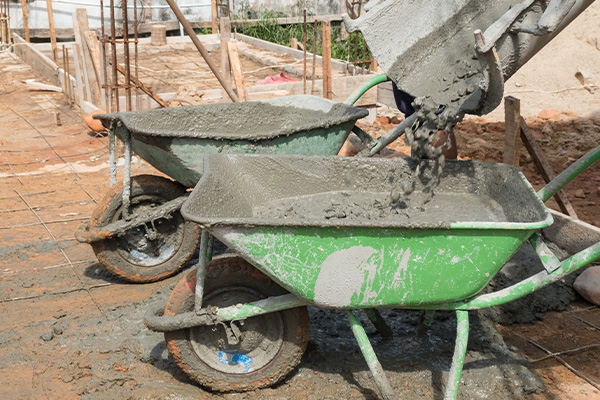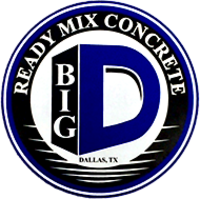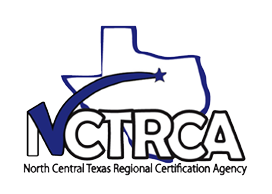How long will it take for the concrete to achieve 100% of its strength?

Setting of concrete
The setting is the stiffening of your concrete structure after it has been placed. A concrete may set, meaning that it is no longer fluid; however, it may still be weak. For example, you may not be able to walk on it. Professionals commonly use the terms ‘initial set’ and ‘final set’ since they are the arbitrary definitions of the early and later stages. Several laboratory procedures can help you determine these using weighted needles penetrating your paste.
Hardening of concrete
Hardening is the process of growth of strength and may continue for several weeks or even months after your concrete has been mixed, placed, and settled. Hardening often occurs due to the large formation of calcium silicate hydrate as your cement structure continues to hydrate. The rate at which concrete sets tend to be independent of the rate at which it hardens. Rapid hardening cement might have a similar setting time to ordinary Portland cement.
Measurement of concrete strength
Traditionally, concrete strength measurement is done by preparing concrete prisms or cubes and then curing them for a specified period. Typical curing time for concrete can be anywhere between 2, 7, 28, and 90 days, and the ideal curing temperature is typically 20 degrees centigrade. After your concrete structures reach the required age for testing, they are crushed in a large press.
The SI unit of concrete strength is measured in megapascal, although ‘newtons per square millimeter’ is widely used in the industry as the numbers are more convenient. Even though measurements based on concrete cubes are widely used within the construction industry, there are specified test procedures that can help you figure out the total strength of your concrete in detail. Though professionals believe that it takes 28 days to reach its 100% strength, several additional aspects and factors may hinder your final results.
Factors that affect your concrete strength
Concrete porosity
There can be voids in concrete that can get filled with water or air. Air voids are an easily-visible and obvious example of pores in concrete. The more porous your concrete structure is, the weaker it is going to be. One of the essential sources of porosity in concrete is the total ratio of water to cement in your final mix, also known as the water to cement ratio. The water to cement ratio is defined as the total mass of water divided by the total mass of cement in your concrete mix.
Cement aggregate ratio
Aggregates are a critical factor that helps professionals impart strength to a concrete structure; therefore, increasing the total cement-to-aggregate ratio will increase the overall strength of your concrete. Keep in mind that higher quality aggregates tend to absorb much less water, so all the extra water can be used to hydrate the cement.
Grade of aggregate
A well-graded aggregate tends to give you the best strength since they often consist of both fine and coarse aggregates that help fill voids and facilitate a greater bonding to cement. All aggregates found near rivers tend to be the best for construction since they possess immense strength. Nevertheless, it would be best if you kept in mind that they can be costly and challenging to break at your convenience.
Moisture
The correct amount of moisture also plays a critical role in determining how hard your concrete structure will be. Excess of water can result in the top layer of your concrete structure starting to flake and crumble. On the other hand, not using enough water can cause your concrete to dry faster, which is not what you want either. Whenever concrete dries too fast, it loses its strength and cannot support normal weight loads. Remember that moisture issues often occur in the mixing stage of the concrete, but weather conditions can also play a role. High humidity and rain can also interfere with your curing process. It is always a great idea to check the weather forecast before you start mixing.
Mixing
If you wish to get maximum strength out of your concrete, you must pay close attention to the mixing process. Even though power increases within mixing time to a certain point, mixing for too long may end up causing excess water evaporation and the formation of fine particles within the concrete mix. This ends up making your concrete harder to work with as well as less intense. Even though there is no golden rule that defines optimum mixing time, it depends on numerous factors like the type of mixer you use, the speed of the mixer, and the components and materials within the given batch of concrete.
Want to learn more about concrete strength and how to increase it? Get in touch with Big D Ready Mix today!
When assessing any given concrete mix for a construction project, you must know all the various strength properties of that mix. Knowledge of these figures and what property delivers the best result to your project is the key to choosing the ideal concrete mix. With extensive experience in the field, our team from Big D Ready Mix can help you with all your questions regarding concrete strength. Moreover, our experts can also inform you about a few ways you can increase the strength of your concrete structure.
If you feel like you need more information regarding concrete or are hoping to get in touch with a professional ready-mix concrete dealer in the Dallas/Fort Worth area, you can contact our team at 972-737-7976 right away or contact us online. We’re always happy to help.
Looking for the best ready mix concrete supplier in Dallas, TX?
Big D Ready Mix Concrete offers you high-quality concrete products and excellent service!
Sister Companies


Our Certifications

Small Business Enterprise
Women Business Enterprise
Disadvantaged Business Enterprise
About Us
Big D Ready Mix Concrete has been serving clients in the Dallas, TX area since 2002, with over 400 utility mixes, high-strength wall mixes, exposed aggregate mixes, flexural strength mixes, stamp concrete mixes, flowable fill mixes, grout mixes, and trailer pump mixes.
Contact Information
10361 Bickham Rd
Dallas, TX 75220
(972) 737-7976
Email Us
Monday-Saturday 5am to 6pm
Dispatch Hours: Project Dependent